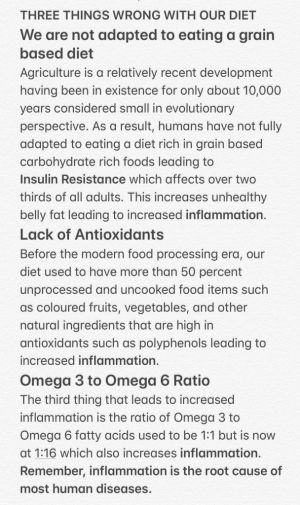Weight gain
Weight gain and obesity can result from a combination of various factors, some of which can make it difficult to lose weight or prevent weight regain.
12 common reasons for weight gain
Some of these factors include:
- Family history and genetics: Obesity often runs in families, suggesting that genetics play a role. If one or both of your parents are overweight or have obesity, you have a higher chance of being overweight. Your genes may also determine the amount of fat you store and where on your body it is stored.
- Race or ethnicity: In the United States, African Americans and Hispanics/Latinos have higher rates of obesity compared to other racial or ethnic groups. This is true for both men and women. Although Asian Americans have the lowest rates of obesity, they may still be at risk of obesity-related diseases if they carry unhealthy fat in their abdomen.
- Age: Many people gain weight as they grow older, with adults often gaining weight in young adulthood and continuing to gain weight until they reach 60 to 65 years old. Children who have obesity are also more likely to have obesity as adults.
- Sex: Women are more likely to have obesity than men, particularly if they are black or Hispanic. The location where the body stores fat can also be different based on sex, with women storing fat in their hips and buttocks and men storing fat in their abdomen.
- Eating and physical activity habits: Poor eating habits, such as consuming high-calorie, sugary, and fatty foods and drinks, and limited physical activity can increase the risk of obesity.
- Environment: Where you live, work, play, and worship can impact your eating and physical activity habits, as well as access to healthy foods and opportunities for physical activity. Living in areas with access to healthier food options and green spaces for physical activity can help to prevent weight gain.
- Family habits and culture: Family habits and lifestyle practices, as well as cultural, ethnic, or religious beliefs, can impact weight and health. Eating unhealthy foods and engaging in inactive activities, such as watching TV or using a computer, can lead to weight gain.
- Sleep: Lack of sleep can result in overeating and snacking more, making it harder to control weight. Adults are recommended to get 7 to 9 hours of sleep per day.
- Medical conditions and medications: Certain medical conditions and medications can also contribute to weight gain and make it harder to lose weight.
- Stress: Managing stress can be difficult and can lead to overeating and weight gain.
- Hormonal imbalances: Hormonal imbalances can cause weight gain, especially in women. For example, an overactive thyroid (hyperthyroidism) can cause weight loss, while an underactive thyroid (hypothyroidism) can cause weight gain. Polycystic ovary syndrome (PCOS) is another common hormonal disorder that can cause weight gain in women. Cushing's syndrome is a condition that results from exposure to high levels of cortisol, a hormone produced by the adrenal gland. This can cause weight gain, especially in the abdominal area.
- Insulin resistance: Insulin resistance is a common cause of weight gain, especially in people with type 2 diabetes. Insulin resistance occurs when the body becomes less sensitive to insulin, which leads to high levels of insulin in the blood. This, in turn, can cause the body to store more fat, leading to weight gain.
How can the W8MD help?
Having helped thousands of patients successfully lose weight under physician supervision, W8MD can help you lose weight safely and effectively under careful medical supervision. W8MD's Insurance Weight Loss is a comprehensive weight loss program designed to help individuals achieve their desired weight loss goals. The program is physician-supervised, ensuring that individuals receive professional guidance and support throughout the weight loss journey. This program is designed to cater to a wide range of people as it accepts most insurance plans, making it an accessible option for those who want to lose weight.
The program offers a variety of weight loss methods, including meal replacements, appetite suppressants, and B12 injections, to help individuals lose weight effectively. Meal replacements provide individuals with the essential nutrients their body needs while reducing the number of calories they consume, leading to weight loss. B12 injections are a new addition to the program and offer additional energy and support for weight loss.
Transform your life with W8MD's budget GLP1 injections from $50.00^
W8MD Weight Loss, Sleep & Medspa Centers is a network of medical centers located in New York, and Pennsylvania, that provide comprehensive care for weight loss, sleep disorders, and aesthetic treatments. We can obtain insurance prior authorizations when coverage available.
Book appointments
Locations
W8MD location(s):
- NYC weight loss: NYC medical weight loss, sleep and medspa: 2632 E 21st St., Suite L3, Brooklyn, NY 11235 Contact: (718)946-5500
- Philadelphia weight loss - 1718 Welsh Road, 2nd Floor, Ste C, Philadelphia, PA 19115 (215)676-2334
- W8MD's Weight loss diet - Recipes (WikiMD)
- Links: Weight loss | Sleep medicine | Medical spa | Nutrition | Success stories |
- Diet pills: Phentermine, Phen/Topiramate, Wegovy, Saxenda, Zepbound, Mounjaro, Contrave, Diethylpropion etc.
- Resources: W8MD diet | Keto diet guide | Free Ebook | 12 Ways to lose weight quickly | 8 Amazing Weeks
- Tags:NYC medical weight loss, Philadelphia lose weight, Zepbound NYC, Budget GLP1 weight loss injections, Wegovy Philadelphia, Wegovy NYC, Philadelphia medical weight loss, Brookly weight loss and Wegovy NYC
![]() Facebook_Shiny_Icon YouTube_icon_(2011-2013)
Google plus
Facebook_Shiny_Icon YouTube_icon_(2011-2013)
Google plus
You can now request appointments by text for all existing patients! Simply send your name, date of birth, and preferred date, location & time to Havila at (718) 207-7411.
- ^ Our budget compounded Semaglutide starts from weekly from $50 and up and Tirzepatide from $65.00 and up weekly with insurance. Self pay patients add $50.00 weekly visit fee.
- The prices are for starting dose only and will go up based on the dose. Insurance copays, deductibles and program fees may apply! Individual results may vary.
Also see
This is a short summary article. For quality control, we do not encourage or allow strangers to edit the content.



